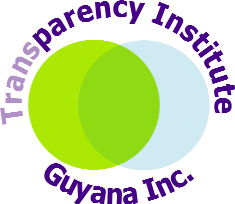“When more than 90 per cent of young people can read and write and have a modicum of education, no traditional authoritarian regime will last for long.” (Emmanuel Todd – French Social Scientist)
“This will be a facebook election”. These are the words this writer keeps hearing time and time again. For anyone following the lead up to the General Elections the thing that separates or makes different this election from any other ever had in Guyana is the existence of the internet and the groupies who follow, religiously, every word however written. Amidst the LOL’s there is a discourse that is changing the nature of our traditional political landscape. Young people, bemoaned as apathetic, are voicing as loudly as they can type, their opinions. Are we listening?
There is a quiet revolution taking place within the midst of the noisy cacophony of political claptrap. It is as much about the expression of ideas as it is about connecting to people in a way which moves beyond mere conversation. For those young people who access the internet and who will be voting this year this is their time and their election. Armed with sufficient zeal it is highly likely that they will be voting on issues rather than hues of colour. Isn’t that revolution enough?

Youth unemployment and the grinding lack of hope are the source of the most serious social and political problems across the Arab world. The unemployment rate among Tunisians under 25 is about 26%. Half of the 60,000 graduates released on to the jobs market every year will not find work. These are the well-educated and highly organised single young people who had nothing to lose during the uprising and have gained very little in material terms since.”
The Arab Spring is not the only indicator of youth discontent in recent times. “Occupy Wall Street” was born out of the discontent of largely white American youth. Dan La Botz writing for International Viewpoint in an article titled “From Occupy Wall Street to Occupy America” reports “A handful of young people started Occupy Wall Street in mid-September, as a protest against the banks and corporations that have grown rich while most Americans have grown poorer. Within weeks they had attracted hundreds and then thousands to marches and demonstration in New York City—one of them leading to the arrest of hundreds on the Brooklyn Bridge. The movement’s chant “We are the 99%” rang out not only in the Wall Street canyon but also across the country.” Now there are scores of Occupy groups across the United States camping out in public places, marching and rallying in cities and towns against corporate greed”.
Are there lessons to be learnt, parallels to be drawn here in Guyana? Maybe. Graduates are emerging from tertiary institutions of learning only to find the job market limited and unduly harsh on the inexperienced and hopeful. Moreover the conversations in virtual space point to growing discontent over issues of corruption and lack of transparency in the process of governance of Guyana. If there are to be protests in Guyana chances are they will not take place on Main Street instead they will be found on Twitter, Facebook and the many blogs that have taken positions of prominence on the Guyana portal.
It would be wise for politicians to pay attention to that portion of the population who are anxious to be heard in the silence of cyberspace. They will, after all, become the leaders and followers of this country, in time to come. Youth angst has always found its voice in music and artistic expression, that it is manifesting itself internationally and locally in cohesive, vibrant and thoughtful political discourse is as inspiring as it is hopeful.




